Check out some books by your tutor Fiona Veitch Smith … (click on the book covers to find out more)
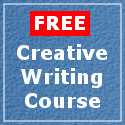 Hello everyone, welcome to the first session of our free online creative writing course. Over the next eight sessions we will be looking at different aspects of creative writing and trying our hand at various forms. I’d strongly encourage you to have a go at the exercises along the way, and please feel free to leave comments or ask questions at the end. If you have arrived on this page without first reading the home page and frequently asked questions page (on tab above) please go back and do so now. If you have read them, enjoy the course!
Hello everyone, welcome to the first session of our free online creative writing course. Over the next eight sessions we will be looking at different aspects of creative writing and trying our hand at various forms. I’d strongly encourage you to have a go at the exercises along the way, and please feel free to leave comments or ask questions at the end. If you have arrived on this page without first reading the home page and frequently asked questions page (on tab above) please go back and do so now. If you have read them, enjoy the course!
Creativity and Art
What is creativity? The Collins dictionary defines it as ‘the ability to cause something to exist’. Without getting into too much of an existential discussion, I would say that with every thought that is expressed, something has been created. It was Descartes who said: ‘I think, therefore I am’; well I would add, ‘I think, therefore I create’ (do you feel a God complex coming on?). But how do we express our thoughts? Sometimes we do it verbally, other times by body language and still again through what is loosely termed ‘art’.
Art takes place when a thought is expressed and fixed in a way that other people may experience it on an aesthetic level – through music, writing, painting, sculpture, choreography and so on. Many artists say that their best work takes place when they ‘by-pass’ the thought and simply express the feeling. This may be true, but for writers, who use a verbal medium, a feeling must first be converted into a thought before it can be put into words. Don’t over analyse the thought before you express it, as this way you can ‘channel’ the purest interpretation of the feeling, but some cognitive process needs to take place. Some writers prefer to mull over a thought and give it form before they put pen to paper – I’m one of them – but it’s good practice to try and switch off the ‘editor’ at least for the first draft. First response trigger exercises are useful in this regard and can release some unexpected words and images.
Exercise 1:
Write down your first response to these words or phrases:
- Blue ball
- And that’s when the sadness came
- Coffee
The first task of a good writer is to convert feelings into thoughts and then into words. This is the raw material that can then be converted into something more permanent. Some writers refuse to toy with their first drafts, believing their creativity will be diluted; I disagree. Allowing your critical mind to improve a piece of writing is where the craftsman meets the artist. Something produced only by the former will lack soul and something by the latter will lack form. Good writing is a combination of art and craft.
For public consumption
Art, of course, is highly subjective and one woman’s masterpiece is another woman’s unmade bed. We all have the ability to create, but whether or not our creation is ‘art’ must be left to the eye or ear of the beholder.
In this session we will look at how you can craft those creative thoughts into creative writing to share with other people. And that’s what sets ‘public’ writing apart from ‘private’ scribblings – there’s a perceived readership in mind. When I ramble on in my journal, I am the only one who will read it (hopefully!) so my only concern is getting my thoughts down on paper. The moment I want someone else to read it I begin to consider ways to improve the presentation and craft it into something more aesthetically pleasing. I consider which words may sound more colourful, whether or not my sentence structure is grammatically correct, whether I’m using evocative imagery, and so on.
Story, feeling or image?
What is it about those creative thoughts that you think might be of interest to other people? Do they speak of an eternal truth or a common experience? Do they make you laugh or cry? Do they suggest a story that will entertain or a poem that captures a moment that must be shared?
Exercise 2: In 50 words or less write down why you want to write then list three creative thoughts that you’ve had lately (each 10 words or less). These may be an image, a musing, a ‘truth’, a story, or so on. If you haven’t had any, take yourself for a walk and look around; what grabs your imagination? Browse through a newspaper or a magazine; do any stories or pictures catch your attention? Think back over your day; did anything funny, charming, shocking or unusual happen to you or someone you know?
Poetry or prose?
Some people are more suited to writing poetry than prose and some people do well at both. Although we won’t be discussing it in this course, other people are more suited to script. I’m one of them. I’ve had relative success as a prose writer and in fact have managed to earn a living from it, but it’s taken years of hard work to get to this point. I recently branched out into scriptwriting and found that I had much more of a natural ability. (If you’re interested in finding out more about scriptwriting, check out getting started in playwrighting). You may find that you’ve been trying to make it as a poet when actually you’re more suited to prose. Now I don’t want to pigeonhole anyone, but ask yourself the following questions:
- Are you more attracted to films than stills?
- Do you enjoy telling people ‘stories’ from your life?
- Do you prefer to read stories or poems?
If yes, to these, then you may be more suited to prose than poetry. If no, then the opposite may be true. If it’s ‘sometimes yes, sometimes no’ then perhaps you are suited to both. We shall be looking at how to write poems in more detail in session 7, but suffice to say, a poem is like a snapshot of a moment. If you can’t rest until you know what happened before and after, then prose may be your genre.
Exercise 3: Take one of the three creative thoughts you wrote down in Exercise 2, then list 20 separate words that communicate or describe that thought. Do not, at this stage, link the words into sentences. Once you have your 20 words use them in a poem of 16 lines or less. Then, take the same 20 words and work them into a short story of under 300 words. Which exercise came more easily? Which form has best communicated your creative thought?
Further Resources:
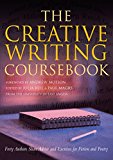
There are some excellent resources out there for creative writers. To get quick ‘starter’ images when your own well is dry I recommend The Writer’s Block by Jason Rekulak. I’m currently working through The Creative Writing Coursebook by Julia Bell and Paul Magrs and finding it very useful.
The next creative writing course session is how to write a short story. But before you move on to that, please feel free to leave a comment or ask a question in the box below.
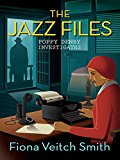
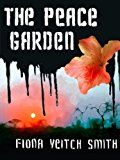
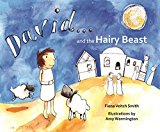
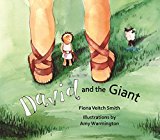
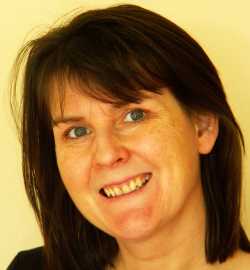 Welcome to The Crafty Writer's free online creative writing course, presented by Fiona Veitch Smith, a freelance journalist, editor, author, playwright, screenwriter and writing teacher. I hope that you'll see a dramatic improvement in the quality of your writing as you work through this course.
Welcome to The Crafty Writer's free online creative writing course, presented by Fiona Veitch Smith, a freelance journalist, editor, author, playwright, screenwriter and writing teacher. I hope that you'll see a dramatic improvement in the quality of your writing as you work through this course.
yes’ my name is Deborah Watson .I just found this course. do anybody know how to get in touch with the instructor to discuss the steps after they completed.
thanks
Hello Deborah. There is a contact form. However, please be aware I do not give feedback on the individual exercises as this is a free course and I don’t get paid for my time. I am happy to clarify if anything is unclear with how the course is structured or where to find things but I do not give feedback on your actual writing as part of the course. There is however an option to request a paid critique of a longer piece of writing that you are working on. Please refer to the FAQ page for a link to my rates. I hope you enjoy the course.
thank you for this resource Fiona, It gave me a real kick start to get the ideas out of my head and put them on paper!
You’re welcome, Pat! Happy writing.
I want to learn with you more something about write.
I write poetry and because of this I think that your curse is important.
I came across this site while looking for free creative writing course online. I haven’t written much in the last twenty-one years after graduating from college, and although I’ve worked as an editor, I don’t feel like going back to writing because of ‘laziness’ in thinking what to write about. It’s only lately that I felt the ‘itch’ again. After doing the three exercises, I’m comfortable now in proceeding with the next sessions. Thank you very much for coming up with this free course. I hope to buy the books in the future for my reference.
I’m very glad you’ve started writing again, Noreen. And long may it continue.
Hello Ms.Fiona Smlth I am so happy to have run across your free course for writing. I have learned a lot already and look forward to learning more. I really appreciate you doing this not just for me but for others also that have the passion for writing. I dream of one day writing a novel.Thank you so much very interesting.
YOu’re very welcome, Patricia. Happy Writing!
I am looking forward to take your Creative Writing course as soon as possible and is it applicable for you to send me creative writing text book, please?
Or am I going to download it for free from the internet?
Regards
Tiua Gary Taniera
Hello Tiu. The course is free, I hope you enjoy it. The book isn’t mine. It’s just one that I personally find useful as an introduction to creative writing. It is not needed to do the course. If you would like to get it, that’s up to you. If you click on the book cover it will take you to Amazon. Or you can buy it from any other bookshop or see if your local library has it. As I said though it is not essential to the course.
i would love to take an online writing class i love to write stories
I liked this course very much, that i’m going to advice it to both my friends and my sisters. Thank you very much. This course is helping a lot to get my thoughts on paper.
I am grateful to come across this course.I shall practice with the exercise to improve my idea of creative writing and to shape my vast ideas to a form of writing that give meaning.thank you.
Fiona, would you recommend that i read either of the two books you mentioned before i do any of the exercises or just as supplement to this section? Thanks!
Hi Misty, purely supplemental. The course is self-contained. Enjoy!
HI Misty. They are just supplemental – ‘optional further reading’. The course is self-contained. Enjoy!
I was glad to find your course. I have done various types of writing; I want to learn how to write better. Short storys are my current interest.
Maddog
I have just completed the first lesson and it was a breeze . All though when I reached eqxcerise three it posed a bit more of a challenge and I got through it.i think this will be a blast and every educational.
S.pernicka
Hi out there, I was just going over the exercise and found that completing exercise three wasn’t’ taste easey as I thought. It asks for a 16 line poem which I managed okay. However it was it to write. The story on the other hand, came flowing out like a smooth stream,Moses though it was 300 words I went over three hundred words. Found it very hard to stop. Anyone else feel that way. So, should I fix it or leave it as a guide line; where as I won’t do it agin. Any advice would be helpful thanks..
Steafnie, these exercises are for your own benefit. There is no right or wrong way of doing them. If you’re happy with what you’ve written and you feel the creative juices are flowing, go with the flow.
Hello. I have just come across your free creative writing course and I have just completed the first course.
I have written mostly free flowing poems or they could be prose. I have never gone back, and looked over form, I only wrote what was coming out. I have not written in many years.
Why I looked up taking a course is I would like to be able to read poetry and write form and content, with corrections.
I would also like to learn writing down and explaining feeling thought and explanation by thought of a feeling, if I am following correctly.
There is other sites where i can submit works and get feedback from. I hope to use that site and this course in tandem, with some helpful books as well.
I was wondering if this first lesson has more to do with generating ideas by coming up with the 20 words describing the idea and formulating a short story or poem, or to determine where strengths are of the writer, in poems or in stories?
Hi Steve, yes it is more to do with just getting the creative juices flowing. I would not change careers from poetry to prose (or vice versa) on the basis of one exercise. It was primarily designed with people in mind who don’t think they can write poetry. It was to show them that it’s easier than it looks. If one comes far easier than the other it might be indicative that that is your strength. It’s meant to encourage you that even if one doesn’t come easy to you, there might be another area that does. Please be aware that there is only a little poetry in this course. It is predominantly prose.
I want to learn, how to write good grammatical English and I open you site and found this site is very much useful for start to learn writing english.
Thanks
Hello Rishabh, this might not be the site for you. It is about creative writing rather than teaching you good grammar. I suggest you look at this free resource from the British Council instead http://learnenglish.britishcouncil.org/en/
I love to write as it is a way to get things off my chest and out of my system.I have had a poem and a short story published.I would love to get to the point of making some real money with my writing.
Congratulations! And good luck. Real money … well, that’s always relative! I earn a living, but it’s a very modest one
hello fiona..thanks for the insight.I come from Zimbabwe and I am a law student but Im considering a career in writing also. This has been very helpful. Thank you
You’re welcome Linda. Wishing you well with your writing dreams.
Fiona, Perfect. Exactly what I wanted. Thanks. I want to see if I can get through this before I sign up for a paid class. So far, I’m loving the first lesson.
In exercise 2, I had a really tough time keeping those 3 thoughts to 10 words. I know that ultimately, I use too many words. But is it really essential to keep those thoughts to 10 words. I had to cheat to 20 words. And again, I couldn’t really do a short story in 300 words. I kind of created a character introduction that came out to about 300 words. Are later lessons going to address economy of words?
Hello Sue,
These exercises are designed to help you distil your creative thoughts into as few words as possible – to get to the essence of what it is you want to say. I would suggest you try to do them using the least number of words you can. But if 300 is too few, that’s fine. The purposes is to just get your creative juices flowing and then to move on with the course. Don’t get too hung up on it. Just carry on with the course. And no, there won’t be any sessions on economy of words. Happy writing!
Fiona
Thank you for the coarses. I have started writing and this has helped me kick start my brain back into action. Thanks again!
You’re welcome, Sara.
I just found this course, so far it’s got my juices flowing. The thing is I completed the poem in about twelve lines, but the story was 110 words over what I was supposed to do. The poem seemed easier with the words in front of me, but I liked writing the story better. Anyhow I am here to try to polish my writing skills. I self published a book two years ago, but made a colossal amount of mistakes in it. So I’ve been doing nonstop research to fix everything wrong with my first book. Thanks for offering this course for free.
You’re most welcome, William. I’ve also made a colossal amount of mistakes in my writing life. You learn as you go. Or at least good writers do. You’re on the right track. Keep at it.